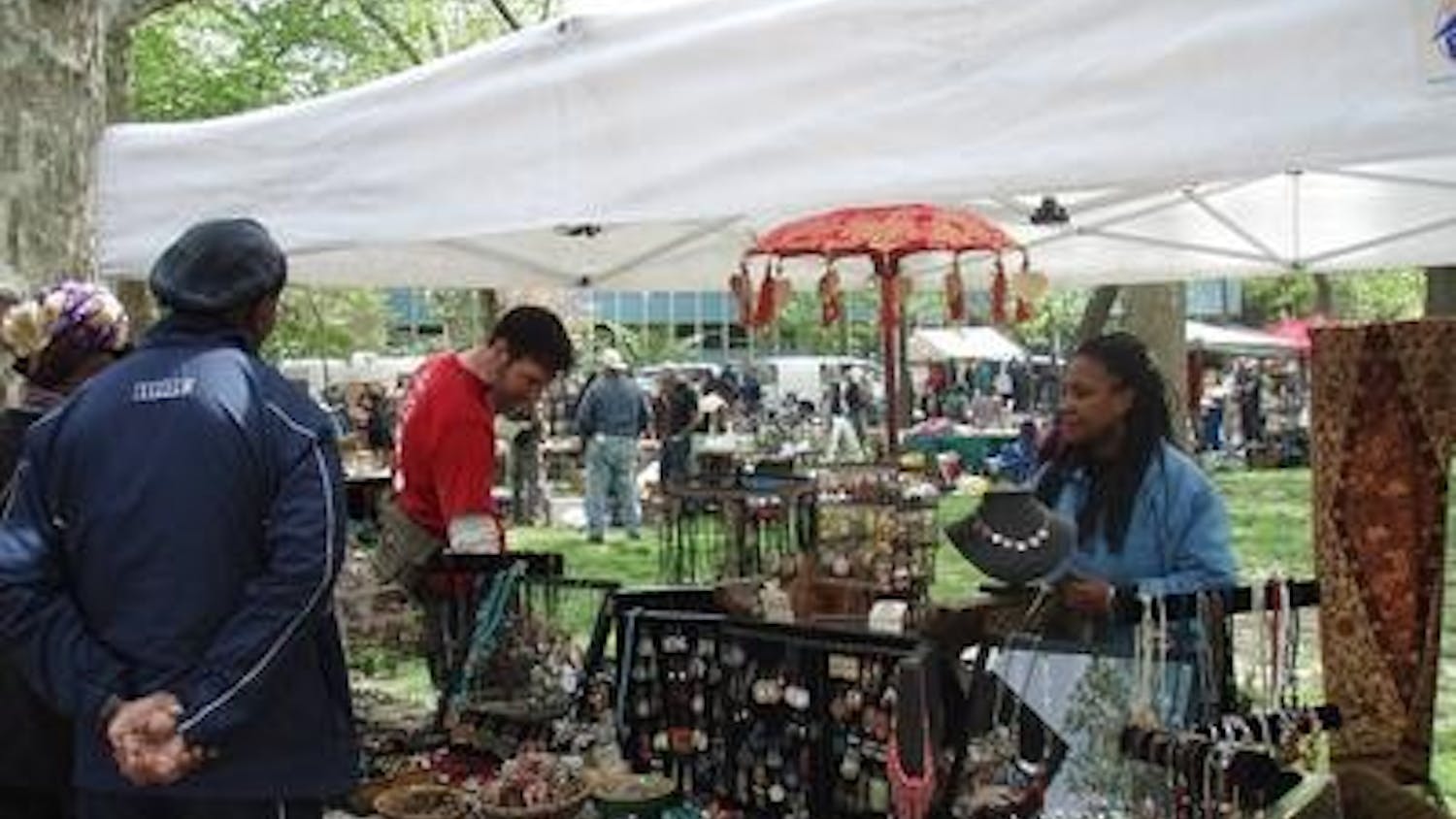Terrence Howard has big, baby-blue eyes. The kind of eyes that make female interviewers fumble around aimlessly for interesting and provocative questions only to receive Howard's curious glances. It's the same eyes, mischievous smile and passionate fervor with which he's captivated audiences in a range of roles from pick-up artist to band geek. But, hypnotic gaze aside, Howard is finally getting mainstream recognition after electric performances in such films as 2000's The Best Man and last year's Ray. With a busy 2005 season that has included a role in the acclaimed L.A. crime drama Crash, Howard's ready to take over with this summer's Hustle & Flow.
Wearing a stinging yet syrupy southern drawl, Howard portrays DJay, a struggling Memphis hustler. Motivated by a chance opportunity to meet a rising rap star (played by Chris Bridges, a.k.a. rap artist Ludacris), DJay lunges for a chance at stardom by recording a hip hop demo. But crippled by sparse finances and even less knowledge of the recording process, DJay taps into the latent talents and skills of his women and friends who all assume vital roles in realizing a collective dream. With the help of his choir-directing crony Key (Anthony Anderson) and his amped-up assistant Shelby (DJ Qualls) DJay cobbles together a makeshift home studio and manages to drop an intense collection of tracks that chronicle his swagger, style and struggles as a street pimp. The story unfolds as bass-heavy, crunked-out music reveals the vulnerabilities and savvy of a motley group of dreamers.
The premise of a pimp trying to become a rap star could easily fall victim to rash of tasteless stereotypes and frustrating humor, but Howard's performance and the film's progression maintains a realism and freshness that sustains the movie. Howard insists Hustle is not about a pimp. Rather, it's the story of "a human being who has lost his way" and now has a second chance at a different life. Some might suggest that a film where a hard-luck guy capitalizes on his prostitution-funded income to create music with such brash lyrics as "Whoop That Trick" is hardly sending a family-friendly message. But Howard offers the perspective that DJay's efforts are not meant to demean anyone and that art has to be respected, whatever the context. Similarly, he is a fan of the spirit of hip hop music and its ability to serve as voice for a generation. With this understanding of the power of art, Howard imbues his character with an honesty and emotion that makes Hustle endearing.
But let's not suggest Terrence Howard is a sensitive girly-man chock full of touchy-feely dramatic quotes. While eating his seafood salad he curses the nimrods who leave crusty shells on the end of shrimp tails. He perks up after I challenge Hustle's message, saying "now we're done being polite...this is good."
Since Hollywood is exclusively for the bitch-made, Howard lives with his wife and children on the outskirts of Philadelphia. Acting is cool and all, he believes, but at the end of the day he wants compensation -- because his job is to move you. In fact, I'm sure it is his talent, not his unique charisma, that nearly made me faint when he touched my arm. He needs to reach you and make you understand the intricacies of the character he is playing. Judging from Hustle & Flow, he does a damn good job.






